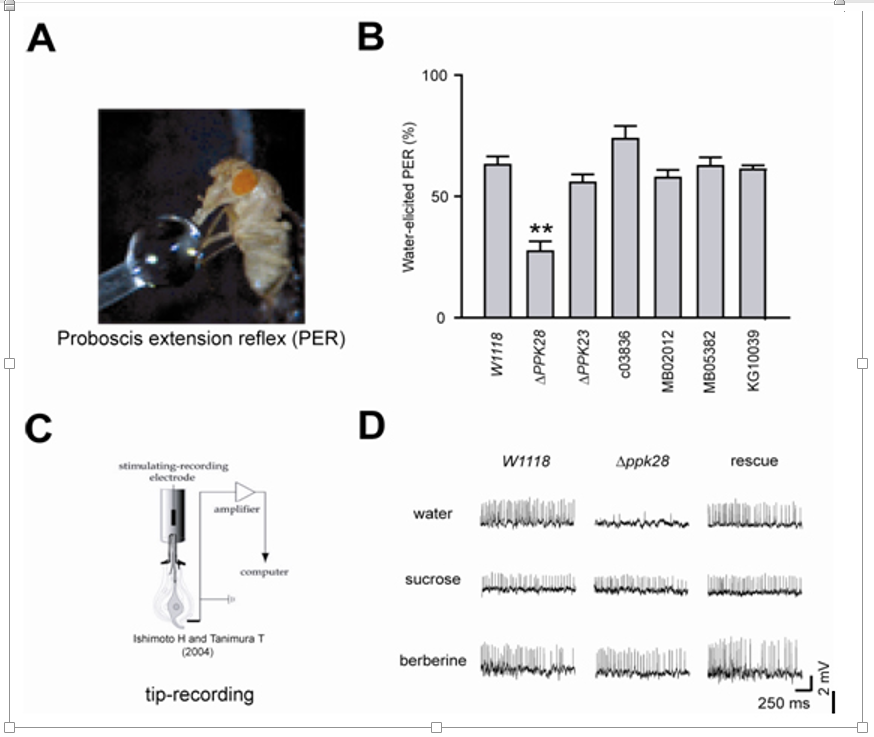Time:2010-05-11
On May 5, 2010, the Journal of Neuroscience published research from the Laboratory of Neural Circuits and Animal Behavior at ION entitled "The Amiloride-Sensitive Epithelial Na+ Channel PPK28 Is Essential for Drosophila Gustatory Water Reception". This work was carried out by graduate student Zijing Chen and research assistant Qingxiu Wang under the supervision of Dr. Zuoren Wang.
Water sensation is a specific taste modality in the fruit fly. Water-induced hypoosmolarity activates specific gustatory receptor neurons; however, the molecular identity of the putative osmolarity sensor in these neurons remains unknown. Zijing Chen and colleagues found that amiloride and its analogs specifically antagonized the response of water gustatory receptor neurons and the behavior of flies toward water stimulation. Deletion of the gene that encodes the amiloride-sensitive PPK28 channel, a DEG/eNaC (degenerin/epithelial sodium channel) family member, abolished the water induced activity of water gustatory receptor neurons and greatly diminished the behavioral response of flies to water. Ectopic expression of the PPK28 channel in the bitter cells within the intermediate-type sensilla renders these sensilla responsive to water stimuli. Thus, the amiloride-sensitive PPK28 channel may serve as the osmolarity sensor for gustatory water reception in the fruit fly.

This work was supported by the grants from the Chinese Academy of Sciences, the Ministry of Science and Technology and National Natural Science Foundation of China.
 附件下载:
附件下载: